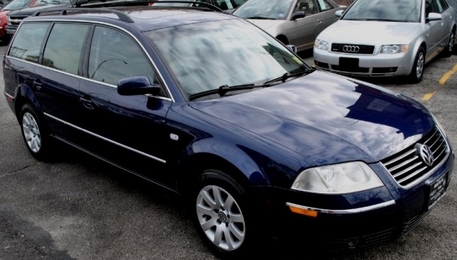 That brand new VW Passat
That brand new VW Passat All three readings today warn against greed, one of the seven capital sins. In fact, Jesus replies to a greedy man with what seems to be snarky remark: “Friend, who appointed me your lawyer?” St. Paul is even more direct: put greed to death. Jacopone da Todi, in 1265, described it in even more acerbically: “obsessive avarice, a worm that knows no rest, erodes the mind with endless preoccupations.” It breeds discontent and dissatisfaction; it poisons our inner thoughts with envy and resentment; greed is a cancer that spreads its fibrous tentacles into every dimension of our lives. But the Bible gives a cure, which I will show you at the end of this homily.
Vanities
The first reading from the book of Qoheleth declares rather drearily “Vanity of Vanities.” Nothingness eventually claims everything on earth. Bishop Baron points out the Hebrew word which we translate “vanity” is actually “bubbles.” All the prettiest things in life are no more than shiny bubbles that disappear within a few seconds. So don’t form an idolatrous greed, because your bubble will burst. As a kid I was greedy for matchbox cars. I had collected about a hundred shiny, fast, and fascinating little idols. They probably still lie in a box somewhere in my parents’ home. At a certain point they ceased to fascinate me, and I wondered why I had spent so much time and money on them.
A few years ago a woman and her husband came for marriage counseling. “He works three jobs!” she complained. “The children and I never see him!” Her husband replied that he was working so hard precisely to provide good things for them—a large house, a boat, vacations, etc. A few years later he came home from work to that large and beautiful house—and it was empty. His wife and children had left. Greed had killed his marriage; and all that he had worked for—to whom would it go?
God calls in the debt
In Jesus’ parable, a man has worked very hard to amass so many things that he has to build bigger barns to store them. Putting things in storage pretty much describes our American society of endless acquisition. Even though I have fourteen pairs of shoes, I must satisfy my greed for even more footgear idols. Does anyone in this church not have stuff in storage somewhere? I had planned on a gentle reprimand, but then remembered that I myself have a few dozen boxes of stuff in a friend’s garage. So in Jesus’ parable, God “demands” the life of that man, just as he was moving his stuff into bigger barns. The literal Hebrew words are that God “calls in the debt.” Our possessions, and our very life, are on loan from God, and he can call in the debt at any time. It will go badly for us if we are not ready to give it back.
So how do I free myself of greed? “Put to death, then, …. the greed that is idolatry,” St. Paul writes. We kill greed by giving a portion of what we have been given away. When I tithe (give a tenth of my goods to another), I declare my freedom from those things. They no longer use me, but I use them to glorify God and help His children.
It really works!
But does almsgiving work? Some years ago I had managed to save up $17,000 over three years to buy a new car. The vehicle ended up costing $27,000, so I had to borrow $10,000 from a friend. Just at that time another priest-friend invited me to a talk on tithing at his parish. The married couples were so joyful in their dedication to sacrificial giving that I decided to begin right away, heedless of my $10,000 debt. And then something strange happened. Even though I was giving significant weekly tithes to the parish, I was able to repay that $10,000 in three months. Money came from everywhere: an unusually large tax refund; a personal debt repaid; an unexpected reimbursement. A family told me after the first Mass yesterday that they had exactly the same experience: they began tithing—they broke the stranglehold—and money came at them. I must say that “free money” dropped on me only once, (probably as an assurance that He was really there), but I’ve never had personal money worries since. The same goes for time: if you give God an hour a week in the adoration chapel, or with the family rosary, or daily Mass, He will give you many more hours in return. I don’t know how it works, but I know it works. “Don’t worry about money,” Mother Teresa said. “God has lots of it.”


 RSS Feed
RSS Feed